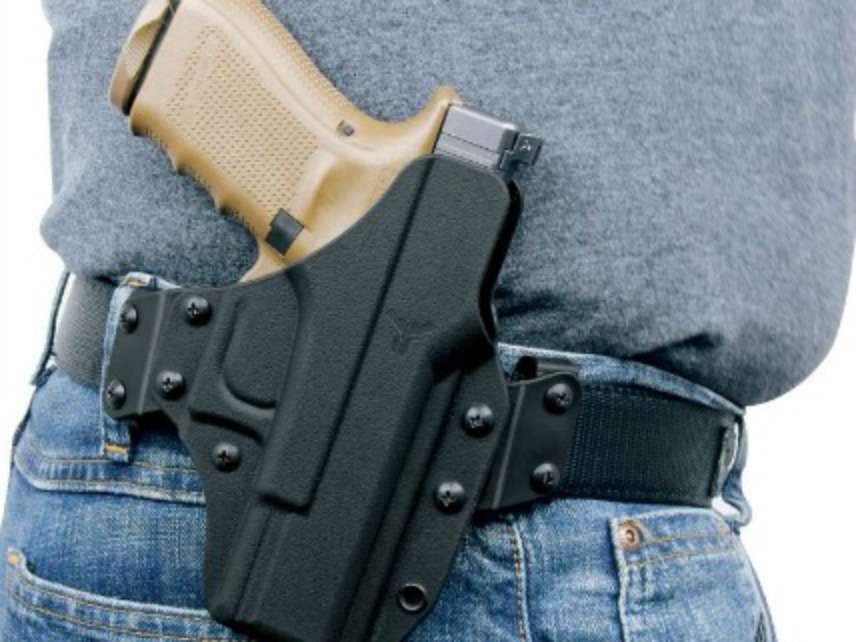D.C. Circuit Won't Reconsider Decision Upholding the Right to Be Armed in Public
The vote confirms a split that invites the Supreme Court to settle the issue.

Yesterday a federal appeals court let stand a decision overturning the District of Columbia's tight restrictions on carrying guns in public, reinforcing a circuit split that invites the Supreme Court to settle the issue of whether the constitutional right to keep and bear arms extends outside the home.
Last year a federal judge in D.C. said it does, and last July a three-judge panel of the U.S. Court of Appeals for the D.C. Circuit agreed. Now that the full court has declined to rehear the case, only the Supreme Court can save the District's highly discretionary carry permit policy, which requires applicants to provide a "good reason" why they want to be armed. An ordinary resident's desire to defend himself does not count.
In its decision last May, the D.C. Circuit panel concluded, based on historical evidence and the Supreme Court's reasoning in the landmark Second Amendment case District of Columbia v. Heller, that "the individual right to carry common firearms beyond the home for self-defense—even in densely populated areas, even for those lacking special self-defense needs—falls within the core of the Second Amendment's protections." Since "the law-abiding citizen's right to bear common arms must enable the typical citizen to carry a gun," the court said, the District's law is clearly unconstitutional, amounting to "a total ban on most D.C. residents' right to carry a gun in the face of ordinary self-defense needs, where these residents are no more dangerous with a gun than the next law-abiding citizen."
The U.S. Court of Appeals for the 7th Circuit reached a similar conclusion in 2012, when it overturned an Illinois law that prohibited most people (aside from police officers, security guards, and a few other exceptions) from carrying ready-to-use guns. That same year, by contrast, the U.S. Court of Appeals for the 2nd Circuit upheld New York's requirement that people seeking permission to carry handguns in public show "proper cause." In 2013 the U.S. Court of Appeals for the 3rd Circuit upheld a similar New Jersey law, requiring a "justifiable need" for a carry permit, and the U.S. Court of Appeals for the 4th Circuit upheld a Maryland law demanding a "good and substantial reason."
Last year the U.S. Court of Appeals for the 9th Circuit upheld a California law requiring "good cause" for carrying a concealed weapon. "The Second Amendment does not protect the right of a member of the general public to carry concealed firearms in public," the court declared, noting that Heller mentions "prohibitions on carrying concealed weapons" as a kind of law that most 19th-century courts had deemed consistent with the Second Amendment. "There may or may not be a Second Amendment right for a member of the general public to carry a firearm openly in public. The Supreme Court has not answered that question, and we do not answer it here."
In June the Supreme Court declined to hear an appeal of that decision, provoking strong objections from Justices Clarence Thomas and Neil Gorsuch. "I find it extremely improbable that the Framers understood the Second Amendment to protect little more than carrying a gun from the bedroom to the kitchen," Thomas wrote in a dissent joined by Gorsuch. "I do not think we should stand by idly while a State denies its citizens that right, particularly when their very lives may depend on it….Even if other Members of the Court do not agree that the Second Amendment likely protects a right to public carry, the time has come for the Court to answer this important question definitively." The D.C. Circuit has amplified that argument by confirming the stark disagreement among federal appeals courts about the scope of the right to bear arms.
